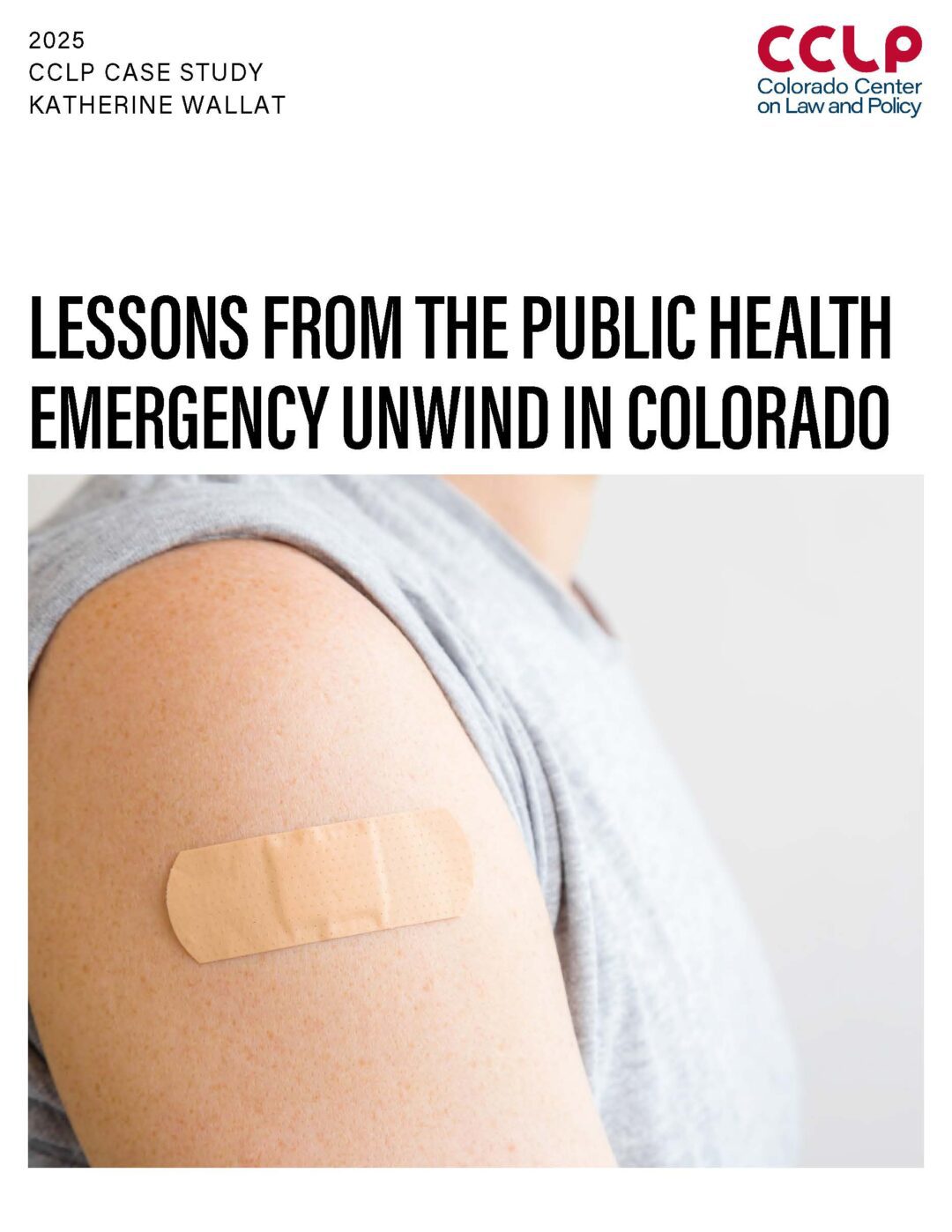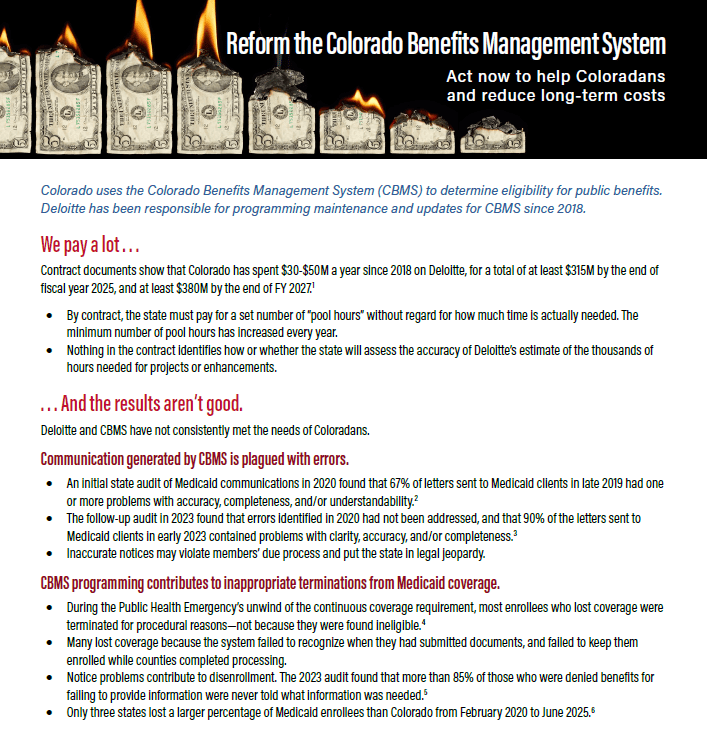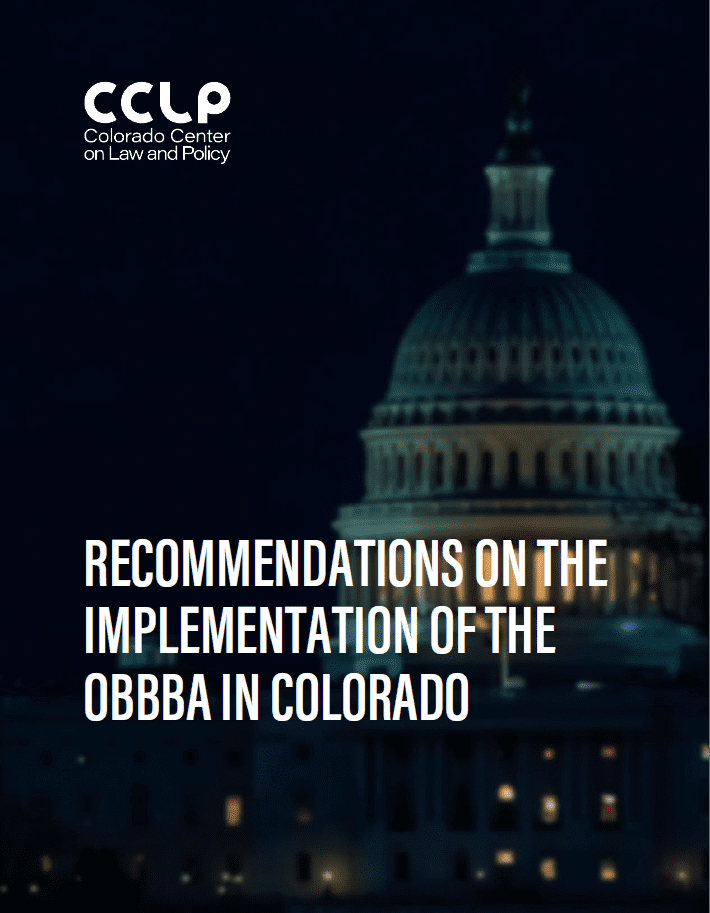View File
As Colorado heads into a new year, there are troubling economic signs everywhere. Unemployment and poverty is up. Wages are stagnant. Fewer people are able to get health insurance. And the gap between the wealthy and low- and middle-income earners is growing rapidly. All of these indicators are coupled by rising consumer prices, a national mortgage and housing crisis, the meltdown of investment markets, and the widespread credit crunch. It all means very serious challenges for working Coloradans. What started as a trickle of snow years ago will turn into an outright economic avalanche for Colorado if policymakers and state leaders don’t take the right steps.
The State of Working Colorado 2008 examines how well Colorado workers fared over the last business cycle. It compares trends in wages, employment and unemployment, poverty and health insurance from the economic peak of 2000 through the 2001 recession to the peak of the recovery in 2007. In most areas, the news is not good for working families.
While Colorado slowly regained the jobs lost during the 2001 recession and workers went back to work, rates of unemployment and underemployment never reached prerecession levels. Moreover, many workers went back to work for fewer hours than they needed to get by. By 2007, a higher percent of Colorado families worked part-time for economic reasons than in 2000.
More troubling than the data on employment and unemployment is the picture of stagnating wages and growing wage inequality that has emerged over the last several years. Median household income and median family income in Colorado failed to reach pre-recession levels by the close of 2007. At the same time, wage inequality grew from 2000 to 2007. The lower-income workers most vulnerable to an economic downturn, those in the 10th and 20th percentiles, actually earned less in real dollars in 2007 than they did in 2000. Those earning the median wage saw their wages stagnate. Only the highest income earners, those in the 80th and 90th percentiles, saw real gains in wages from 2000-2007. The growing disparity between those at the top and everyone else was coupled with continuing disparities by race, gender and education level. These trends show an uneven recovery from the last recession in Colorado with some workers benefiting more than others, meaning that many Colorado workers are quite vulnerable as we head into another economic downturn.
Colorado’s poverty rates offer another glimpse of how families will fare in a new recession. By 2007, a larger share of Coloradans were officially considered poor than in 2000. And, unlike the rest of the nation, the number of Colorado kids living in poverty climbed. In 2007, the rate of poor children in the state has almost doubled from 2000—the fastest growing rate of child poverty in the country.
Along with stagnating wages and fewer hours, many Colorado workers also lost health insurance coverage. The percentage of people without health insurance of any kind in Colorado was higher in 2007 than 2000, and above the national average every year of the business cycle. Colorado did see a decrease in the number of children without health insurance coverage from 2000-2007, but still had one of the highest rates in the country of uninsured poor children. Only Florida and Texas do worse than Colorado in terms of covering kids below 200% of the federal poverty level.
By many measures, 2007 marks the final year of Colorado’s recent economic recovery period and therefore may be the high point for Colorado workers. The United States entered a recession in December 2007, and there are many indications that Colorado will follow. In October 2008, the state’s unemployment rate increased to 5.7%, the highest point since March 2004, and well above the 3.9% rate from the previous October. Employment growth ground to a halt and wage and salary employment saw the largest declines since October 2001. The job loss was not concentrated in a single area, but seen through seven of the state’s major industry sectors. In addition, 2008 ushered in a year of increased costs for basic needs like food and gas and growing unease in the midst of national economic turmoil.
The soft economic recovery that culminated in 2007 might be as it good as it gets for working Coloradans, but it still left low- and middle-income families worse off than they were before the previous recession. Not only did Colorado not see positive movement over the last business cycle on long term challenges like wage inequality, wage growth, poverty and hardship, but now that the national economy is facing a large-scale crisis, these challenges for Colorado workers are likely to be exacerbated by the broader economic problems.
This means that Colorado will need to aggressively enact policies that can support workers through a crisis and help build toward long-term growth and stability. The state of working Colorado is in peril, but smart policymaking and strong leadership can help weather this economic storm and lead the state toward shared prosperity and greater economic security.




CCLP Public Comment to HHS Reinterpretation of Federal Public Benefit
Public Comment, Publications